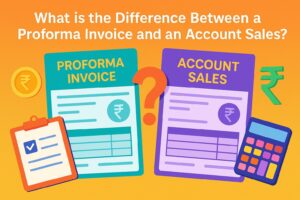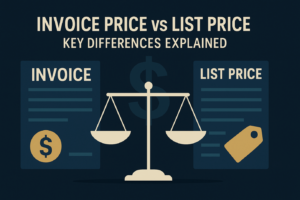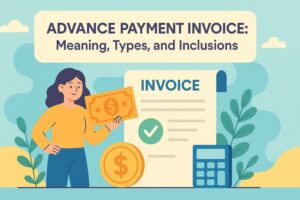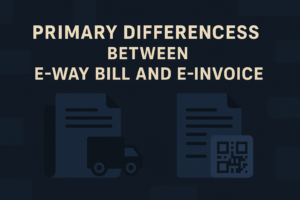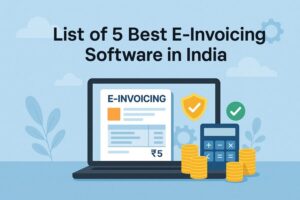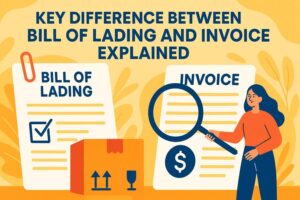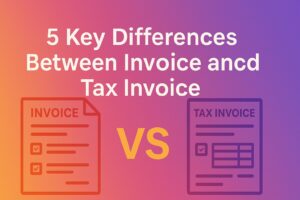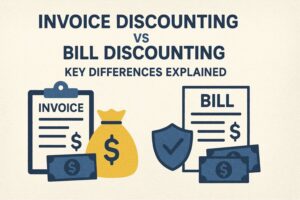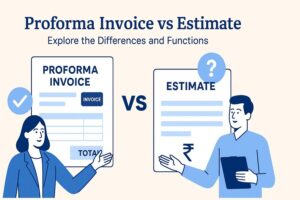Mismatch in e-Way Bill and e-Invoice: Reasons, Consequences and Tips to Avoid
- 25 Nov 25
- 7 mins
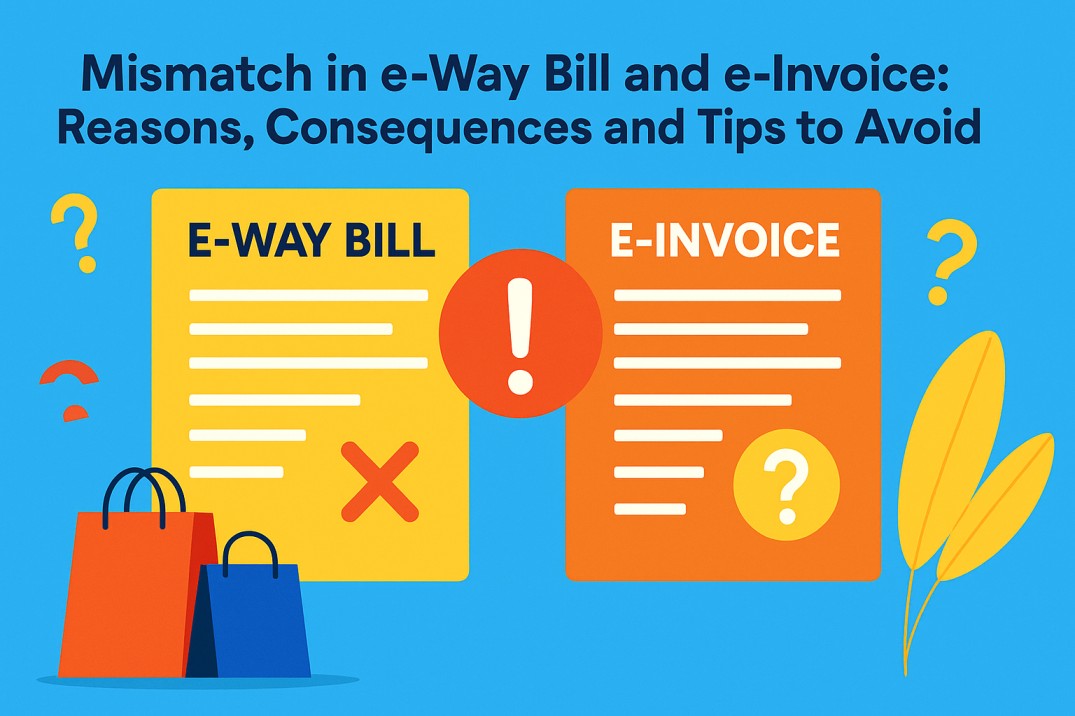
Mismatch in e-Way Bill and e-Invoice: Reasons, Consequences and Tips to Avoid
- What Is the Mismatch in E-Way Bill and E-Invoice?
- Common Reasons for Mismatches in E-Way Bills and E-Invoices.
- Consequences of a Mismatch in E-Way Bills and E-Invoice
- Tips to Prevent Causing a Mismatch in E-Way Bills and E-Invoices
- Can We Change the Invoice Number in the E-Way Bill?
- Why Is It Important to Mention IRN in E-Way Bill?
- Conclusion
Key Takeaways
- A mismatch in e way bill and invoice can lead to penalties, delays, and GST non-compliance.
- From 1 March 2024, issuing an e-way bill with a valid IRN is mandatory for B2B businesses and those with turnover above ₹5 crore.
- Common causes of mismatch in e way bill and invoice include typos, internal miscommunication, outdated details, and intentional tax manipulation.
- Cancelling and regenerating the e-way bill or e-invoice within 24 hours can fix most errors before they cause issues.
- Using automated billing software significantly reduces the risk of mismatch in e way bill and invoice by eliminating manual data entry mistakes.
As of March 1st 2024, all B2B business owners have to issue their e-way bill with a valid and relevant e-invoice or IRN. Moreover, it is also necessary for businesses having an aggregate annual turnover of ₹5 crores.
Businesses must have complementary e-way bills and e-invoices to avoid a mismatch, as it can hamper their business operations and cause financial losses. Make sure to cross-check your invoice number, quantity, taxable value, vehicle numbers and so on.
Moving further, we will know about some common reasons for a mismatch in e-way bills and e-invoices and their consequences.
What Is the Mismatch in E-Way Bill and E-Invoice?
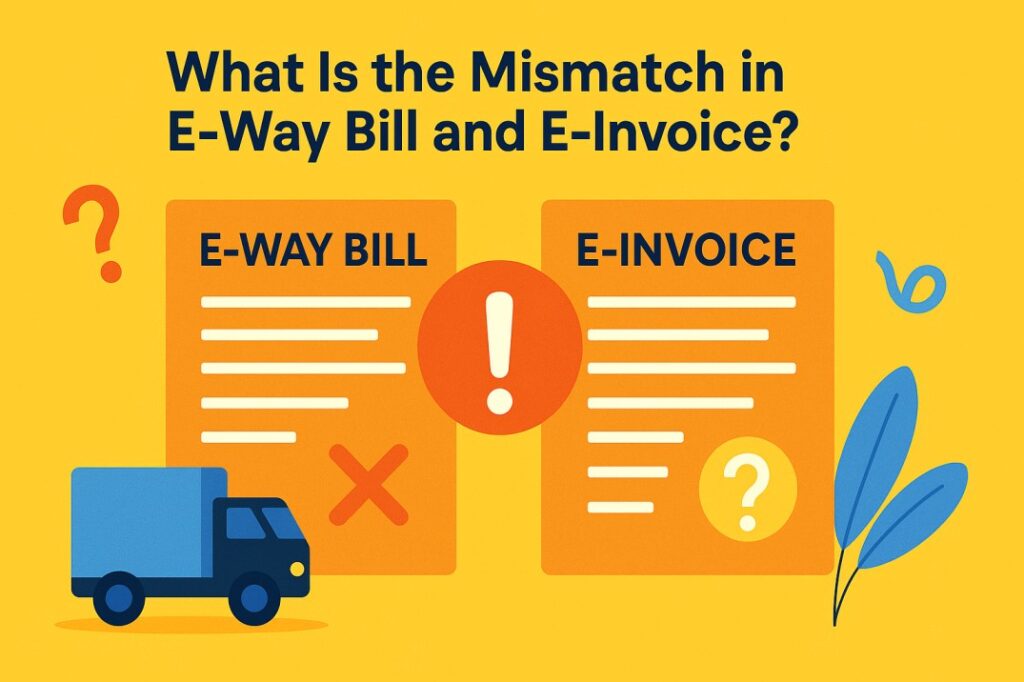
Suppose you sell 50 tables to a client in another state. Now, to pass your truck, you will need an e-way bill with valid details and a copy of your e-invoice.
The authorised officer will match details like HSN code, quantity, price, taxable amount, etc, from your e-way bill and your e-invoice. A mismatch in these details can lead to the hindrance of direct tax compliance, causing penalties and delays in deliveries.
Moreover, an attempt to evade taxes by causing a mismatch in e-way bill and e-invoice can lead to a fine of ₹10,000 or the amount of tax evaded, whichever is more.
Common Reasons for Mismatches in E-Way Bills and E-Invoices.
Did you know e-way bill generation in India reached a new record of 118.15 million in January 2025 as per the GST Network? This surpassed the 112.02 million bills issued in December 2024, the highest in two years at that time.
Despite growing familiarity with the system, businesses continue to face mismatches between e-way bills and e-invoices. Here's a look at some of the common reasons behind these discrepancies:
- Typographical ErrorsTyping errors are the most common way to lose your compliance with the GST laws. This mostly happens when you prefer to draft an invoice manually instead of using a reputable e-invoicing software.
To reduce these errors at source, it is now mandatory for businesses to attach e-invoices or tax invoices with their GST e-way bills.
- Insider Miscommunications
Many businesses, especially large businesses, have different departments for various tasks. As a result, generally, the sales team generates e-way bills and the finance team generates e-invoices or GST invoices. This is a common reason for a mismatch in e-way bills and e-invoices.
- Tax Evasion
Some businesses consciously manipulate or try to undermine the value of goods or services they are selling to reduce tax or for other fraudulent reasons. These types of mismatches are often found in sections like taxable value, tax rate, value or quantity of goods, etc.
- Outdated Details
A lot of times, customers make changes to existing orders or haggle for a discount later on to get a higher price after you generate an invoice. Now, a mismatch in the e-way bill and e-invoice can happen if you update the correction in one and do not change it in the other.
💡For your bill payments and tracking business transactions, use the PICE App.
Consequences of a Mismatch in E-Way Bills and E-Invoice
Mistakes in generating e-way bills and e-invoices can lead to serious consequences. Some of these consequences are discussed below:
- Financial Losses
A mismatch in data, such as the value of goods or the taxable amount, can raise red flags, even if the error is unintentional. Such discrepancies may be interpreted as attempted tax evasion, which can attract penalties of up to ₹10,000 or the amount of tax evaded, whichever is higher, under the GST law.
- Delay in Transportation
The authorities might hold your shipment during transit due to a mismatch in e-way bills and e-invoices. Your case might lead to custody by higher authorities and cause further interrogation and hassle.
All these factors can delay your delivery and can cause extra transportation costs for holding up the driver.
- Increased Scrutiny
The authority keeps a record of your previous mismatches or any kind of GST non-compliance activities. Frequent mismatch in e-way bills and e-invoices can cause the officers to doubt you. They may scrutinise your documents further to find more mistakes.
Tips to Prevent Causing a Mismatch in E-Way Bills and E-Invoices
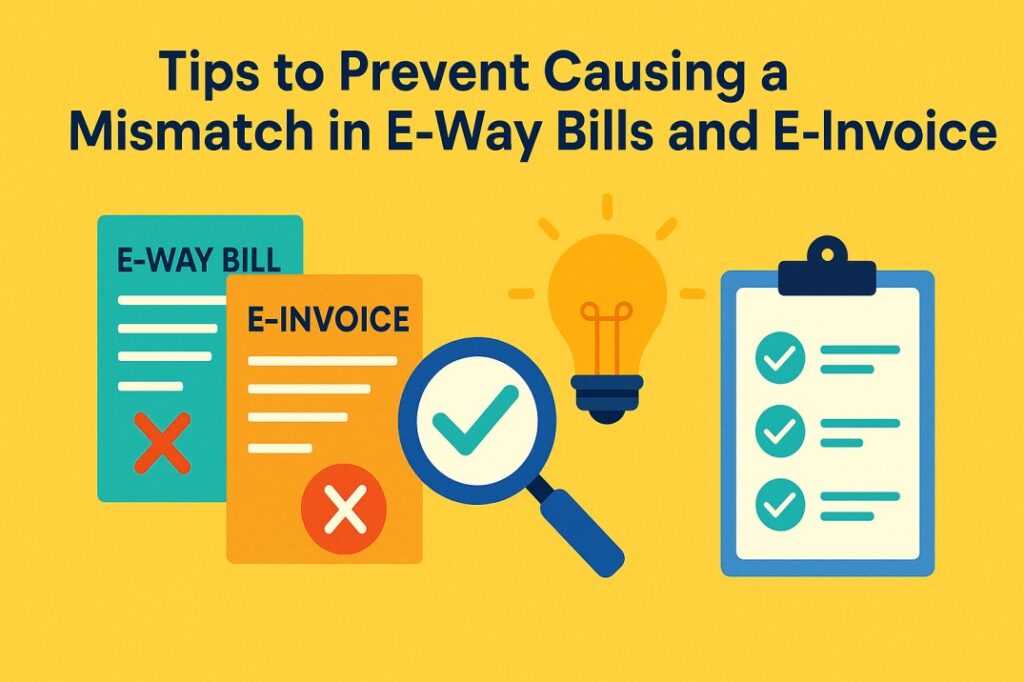
Mismatch in e-way bills and e-invoices can cause serious financial losses. It can also affect your rights as a GST-registered individual. Here are some tips for you to follow if you accidentally cause a mismatch:
- Cancelling the E-way Bill
If you discover a mismatch between your e-way bill and e-invoice after generating the e-way bill, do not panic! You can cancel the e-way bill within 24 hours of its generation. Just be sure to reissue a new e-way bill with accurate details promptly to stay compliant and avoid penalties.
- Cancelling the E-Invoice
If the error is in the e-invoice, you can cancel the original invoice and generate a new one with the correct details. Generally, e-invoices can be cancelled within 24 hours of generation. Be sure to notify the customer and update all three copies of the invoice to reflect the correction.
- Inform the Authorities
Sometimes, you cannot cancel or edit the wrong e-way bill or e-invoice. This happens mostly when an empowered officer verifies it beforehand. In such cases, you must try to contact and inform the GST officer about this and take corrective measures as they say.
Can We Change the Invoice Number in the E-Way Bill?
You cannot change the invoice number in an e-way bill specifically, as editing in the e-way bill is not allowed. However, you can cancel your entire e-way bill within a specified time and regenerate it with the correct invoice number.
Hence, you will have to make a new one instead of editing it. This could be a risky move as you might not be able to cancel and regenerate it. Make sure to cross-check the details, especially the amounts section, before generating it.
Why Is It Important to Mention IRN in E-Way Bill?
An IRN or Invoice Reference Number is a unique number given to every invoice. Now, when we generate an e-way bill, you have to provide the relevant IRN of the invoice of that sale. This helps to maintain parity between the details in e-way bills and the e-invoices.
Conclusion
Having frequent mismatches in e-way bills and e-invoices can cause multiple instances of non-compliance during the transit of your goods. This can cause frequent monetary losses in fines and penalties. Your business goodwill can also be at stake due to constant delays in deliveries.
Using an e-invoicing software and e-way bill generation software can automate the data entry process and reduce mismatches in e-way bills and e-invoices due to common mistakes.
 By
By 





